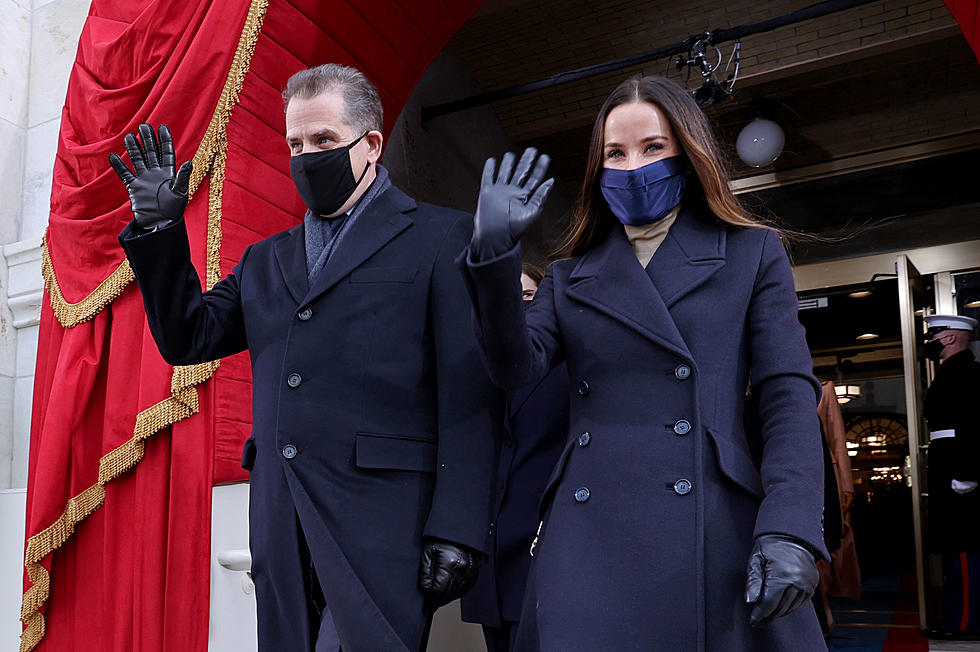
Avowed white supremacist gets life sentence in car attack
James Alex Fields Jr. of Maumee, Ohio, had pleaded guilty in March to 29 of 30 hate crimes in connection with the 2017 attack that killed Heather Heyer and injured more than two dozen others.
Prosecutors and Fields' lawyers agreed that federal sentencing guidelines called for a life sentence. But in a sentencing memo filed in court last week, his lawyers asked U.S. District Judge Michael Urbanski to consider a sentence of "less than life," hoping he would take into account Fields' troubled childhood and mental health issues.
Before the sentencing, the 22-year-old Fields, accompanied by one of his lawyers, walked to a podium in the courtroom and apologized.
"Every day I think about how things could have gone differently and how I regret my actions," he said. "I'm sorry."
His comments came after more than a dozen survivors of and witnesses to the attack delivered emotional testimony about the physical and psychological wounds they had received as a result of the events that day.
"You had a choice to leave Charlottesville, but you did not," said Rosia Parker, a longtime civil rights activist in Charlottesville who said she was standing feet away from Heyer when she was struck by Fields' car.
"You could have done anything else but what you did," Parker said, her voice choking as she stared directly at Fields. "So, yeah, you deserve everything that you get."
Fields appeared stoic and didn't look at Parker or any of the victims as they spoke.
Heyer's mother, Susan Bro, said she wanted Fields to spend his life in prison but also hoped he would get the medication he needed and that one day he would change his views and no longer support white supremacy.
"I hope he can heal someday and help others heal," Bro said.
Fields drove from his home in Maumee, Ohio, to attend the "Unite the Right" rally on Aug. 12, 2017, which drew hundreds of white nationalists to Charlottesville to protest the planned removal of a statue of Confederate Gen. Robert E. Lee.
Hundreds of counterprotesters showed up as well.
President Donald Trump sparked controversy when he blamed the violence at the rally on "both sides," a statement that critics saw as a refusal to condemn racism.
Prosecutors said Fields had a long history of racist and anti-Semitic behavior and had shown no remorse for his crimes. They said he is an avowed white supremacist, admired Adolf Hitler and even kept a picture of the Nazi leader on his bedside table.
During the sentencing hearing Friday, FBI Special Agent Wade Douthit said Fields "was like a kid at Disney World" during a high school trip to the Dachau concentration camp in Germany.
Douthit read grand jury testimony from a high school classmate of Fields who said Fields appeared happy and made the remark, "This is where the magic happened."
The statement provoked audible gasps from the crowd that had packed into the Charlottesville courtroom.
The classmate said when Fields viewed the camp's gas chamber he said, "It's almost like you can still hear them screaming."
Douthit said the classmate was so disgusted by Fields' remarks he stopped associating with him.
During Fields' state trial and in their sentencing memo, his attorneys focused on his history of mental illness and traumatic childhood.
A psychologist testified that Fields had inexplicable volatile outbursts as a young child, was diagnosed with bipolar disorder at age 6 and was later diagnosed with schizoid personality disorder.
In a sentencing memo, defense attorneys said Fields was raised by a paraplegic single mother and suffered "trauma" knowing that his Jewish grandfather had slain his grandmother before taking his own life.
**************************************
The case stirred racial tensions around the country.
Fields was charged with 29 hate crime counts and one count of "racially motivated violent interference." He pleaded guilty to 29 of the counts. In exchange, prosecutors agreed not to seek the death penalty.
Prosecutors and Fields' lawyers agreed that federal sentencing guidelines call for a life sentence. But in a sentencing memo filed in court last week, Fields' lawyers asked U.S. District Judge Michael Urbanski to consider a sentence of "less than life."
"No amount of punishment imposed on James can repair the damage he caused to dozens of innocent people. But this Court should find that retribution has limits," his attorneys wrote.
Fields has almost no hope of getting out of prison in any case: He also faces sentencing in state court on July 15. A jury has recommended life plus 419 years.
Brian Levin, who directs the Center for the Study of Hate & Extremism at California State University, San Bernardino, said he believes there is little chance the federal judge will give Fields anything less than life.
"The bottom line is this is a historically significant act of violence that the government has an obligation to condemn through the strongest punishment possible, and I think the judge is very conscious of the facts and the significance surrounding this terrible case of domestic terrorism," Levin said.
Fields drove from his home in Maumee, Ohio, to attend the "Unite the Right" rally on Aug. 12, 2017, which drew hundreds of white nationalists to Charlottesville to protest the planned removal of a statue of Confederate Gen. Robert E. Lee.
Hundreds of counterprotesters showed up as well.
President Donald Trump sparked controversy when he blamed the violence at the rally on "both sides," a statement critics saw as a refusal to condemn racism.
Fields' lawyers are hoping the judge will take into account his troubled childhood and mental health issues when handing down his sentence.
During Fields' state trial, a psychologist testified for the defense that Fields had inexplicable volatile outbursts as a young child, was diagnosed with bipolar disorder at age 6 and was later diagnosed with schizoid personality disorder.
In a sentencing memo, defense attorneys said Fields was raised by a paraplegic single mother and suffered "trauma" knowing that his Jewish grandfather had slain his grandmother before taking his own life.
Prosecutors, however, said Fields has a long history of racist and anti-Semitic behavior and has shown no remorse for his crimes. They said he's an avowed white supremacist, admired Adolf Hitler and even kept a picture of the Nazi leader on his bedside table.
During the sentencing hearing Friday, FBI Special Agent Wade Douthit said Fields "was like a kid at Disney World" during a high school trip to the Dachau concentration camp in Germany.
Douthit read grand jury testimony from a high school classmate of Fields who said Fields appeared happy and made the remark, "This is where the magic happened."
The statement provoked audible gasps from the crowd in a packed courtroom that included Heyer's mother, Susan Bro, and more than 30 people who were injured when Fields drove into the crowd of counterprotesters in Charlottesville.
The classmate said when Fields viewed the camp's gas chamber he said, "It's almost like you can still hear them screaming."
Douthit said the classmate was so disgusted by Fields' remarks he stopped associating with him.
Bro said she would like to see Fields imprisoned for life.
"I don't necessarily want to see him out and about again because I think it sends the wrong message," Bro told The Associated Press. "I'm hoping that justice is served, but I'm also hoping he can get some help."
More From News Talk 96.5 KPEL









